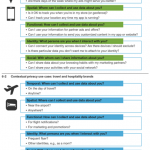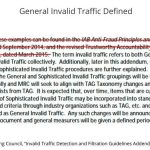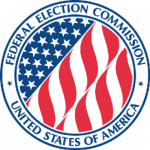FCC Republicans Aim To Repeal Net Neutrality, Privacy Rules
by Wendy Davis@wendyndavis, December 8, 2016

The two Republicans on the Federal Communications Commission say they aim to overturn the net neutrality rules after President-elect Donald Trump takes office.
The rules, passed by a 3-2 vote last year, reclassified broadband as a utility service and imposed some common carrier rules on broadband providers. The regulations prohibit providers from blocking or throttling service and from charging content companies higher fees for faster delivery. The rules also prohibit providers from hindering Web users and content companies from connecting with each other online.
Commissioner Ajit Pai, an outspoken critic of the net neutrality order, said this week that he believes its “days are numbered.”
“I’m optimistic that last month’s election will prove to be an inflection point — and that during the Trump Administration, we will shift from playing defense at the FCC to going on offense,” Pai said in a speech delivered to the anti-regulatory group Free State Foundation.
“On the day that the [net neutrality order] was adopted, I said that ‘I don’t know whether this plan will be vacated by a court, reversed by Congress, or overturned by a future Commission. But I do believe that its days are numbered.’ Today, I am more confident than ever that this prediction will come true.”
Michael O’Rielly, the other Republican on the FCC, also criticized the agency’s “harmful policies,” including the net neutrality rules.
Speaking to the Free State Foundation, he characterized the open Internet order as “wrongheaded, harmful to consumers and the industry, costly, and ultimately unworthy of continuation.”
In the same speech, O’Rielly also criticized the FCC’s new broadband privacy rules as “inconsistent with the Federal Trade Commission regime that has governed the Internet until now, and will continue to govern most of it.”
Those rules, passed in October, prohibit Internet service providers from drawing on information about subscribers’ Web activity and app usage for ad targeting, without consumers’ explicit consent. The privacy regulations apply only to companies that provide consumers with access to broadband, like Comcast, Time Warner and Verizon.
Web publishers, search engines, social networks and other so-called “edge providers” aren’t bound by the new rules and need not obtain users’ explicit permission to draw on data about their Web use for ad purposes.
The new privacy rules are slated to take effect early next year.
MediaPost.com: Search Marketing Daily
(16)













